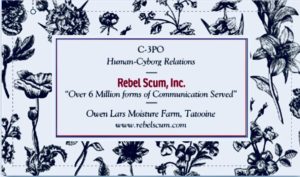I drove 75 miles to the northside of Indianapolis on a bleak January day to have two meetings for the sole purpose of networking. One was one-on-one; one with a group of senior financial executives. Each meeting lasted about an hour. By the time I arrived back home just after 10PM, I had spent more time driving than meeting. No tangible results, but totally worth it.
Both meetings were with people I had never met before, but who trusted friends had introduced me to. A year ago I would have wondered whether it would be worth the time and travel to meet people just for the sake of meeting them. I don’t wonder anymore: It was, and it is. So far, nothing has come of either meeting. Even if nothing ever does, it still will have been worthwhile.
If making or renewing connections is on your to-do list and you are still standing on the sidelines, particularly if you are a natural introvert like me (yea, verily, ’tis true), let me pass along what I have observed in the very short time I have consciously been working on building/rebuilding/renewing my professional network.
The Proof First
I have good reason to extol the virtues of seemingly unproductive networking. So far this year, I have reaped the benefits of connections I first made 10 and 20 years ago. I have two active consulting projects keeping me busy 50 hours a week, and I had a good lead on another (it was a cool project, but didn’t pan out) – all due to referrals from people I have known for many years. One of my benefactors was a person I had not spoken with in at least five years (shame on me) before we recently reconnected. Without those connections, I would not have found these opportunities.
I owe my livelihood to the generous recommendations of my network. In fact, every job I have ever had in the past 40 years has come from people recommending me, and my experience in this is not unique. Literally every professional with whom I have discussed job searches and consulting (and there have been many) has echoed the same observation, often backed up by facts and figures: The most certain path to finding good jobs is through referrals. And, for high-level jobs, referrals are often the only path. Referrals come from relationships, and relationships require contact. Contact means networking, and networking leads to working.
Getting Started
The easiest place to start networking is with people you already know – probably current or former co-workers or social connections. Aim for having lunch, coffee, or a similar non-date type of socialization with a friendly business contact at least once a month. Hopefully, you have more than one person in mind and you can rotate through them, sprinkling in new contacts later.
Meal times are particularly convenient for networking since most people try to pause at least once a day to eat anyway. It may increase your odds of success if you casually offer in advance to pick up the check. For example: “Hey, I’d like to learn more about what you do and how you do it. Could I buy you lunch or a cup of coffee sometime soon?” Having been a naïve young professional in the distant past, I can attest that some invitations are declined due to the unfortunate circumstance of the invitee being broke, compounded by the uncertainty of common social conventions like whether the inviter will pay for lunch. (Remind me to tell you about my 1991 interview and first two weeks on the job. You will never feel awkward again.)
In-person contact is best for networking, but if you are remote or shut-in try Skype or some other video conferencing solution. You can still do lunch or coffee (or a lovely grande soy no-foam Chai or Green-Tea Latte) over video.
Now let’s get started with some
Helpful Guidelines
The First Rule
The professional point of networking is to increase opportunities through raising your awareness of others, and their awareness of you. Naturally, this means you must talk about yourself, which brings us to The First Rule:
The first rule of talking about yourself is: don’t talk about yourself.
When you meet with people, make it your primary goal to learn about them and their point of view. Steer clear of unhelpful gossip and sensitive information. In that spirit, it is generally best to avoid talking about religion, politics, and money unless your profession is clergy, politician, and financier, respectively. Ask about their work, role, company, and industry. What are their big projects? What is going well, or poorly? Where did they go to school? What one thing would they change if they could? What are their goals? Which books have they read lately? What is the airspeed velocity of an unladen swallow?*
Your keen interest in learning about them should lead to them asking about you as well, at which point The First Rule no longer applies. We call this phenomenon “conversation.” If, however, your incredible inquisitiveness fails to realize reciprocity, and you thereby miss the chance to discuss your own fascinating point of view and considerable skills and talents, then you will at least have begun to establish your reputation as a person who listens and shows interest in others. For those who love to talk, there is no greater networking experience than with those who will listen endlessly and smile benignly without becoming violent.
Slow is better than no.
Natural law is full of interwoven object lessons summed up in The Law of the Harvest: You cannot reap what you do not sow. Neither can you guarantee that everything you do sow will grow. In keeping with the theme: anything that does grow must be tended (watered, fertilized, pruned) or it will likely wither and die or get choked out by weeds. All of this is metaphorically true for networking relationships as well.
Networking and natural law are summed up nicely in a proverb: “The best time to plant a tree was 20 years ago. The second-best time is now.” Get started. A slow start is better than no start, and there is no time like the present.
Keep networking even when you think you no longer need to.
Introverts in particular may turn to networking only out of need, like when they start looking for a job or a friend. (Bad idea. See above.) Worse yet, they often stop as soon as they get one or the other. Do not do that. Slow down if you are too busy, but never stop entirely. You must continue to invest time to keep your relationships alive and capable of bearing fruit. No matter how secure you believe you are today, you may yet find your fortunes changed drastically tomorrow. As another proverb advises: Be kind to everyone on your way up; you’ll meet the same people on the way down.
You need to keep watering the garden of networking for your own benefit, and you owe it to your fellow wayfarers (Yes, dammit, owe! Human kindness does not a socialist make!) to be there to help them when you are able. Your encouragement alone can do wonders for the wanderers. Helping others has always been our highest calling. Dickens knew there was more to business than business when he wrote A Christmas Carol 175 years ago.
“Mankind was my business. The common welfare was my business; charity, mercy, forbearance, and benevolence were all my business. The dealings of my trade were but a drop of water in the comprehensive ocean of my business!” -Dickens, A Christmas Carol, 1843
Go to group events with a target in mind.
Some people like rules and guidelines. I am some people. My target for a group event: connect with three people. You can shoot for more when you have more experience or capacity (remember I did say this was networking for introverts).
Keeping (new) connections small in scope has obvious benefits. You will more likely remember the names of three than thirty, and you will dig deeper if you linger a few minutes and ask about them and their business, position, expertise, history, and so forth. If they give you a business card, make a few notes on the back to remind you where and when you met, and add any salient details. Next time you are at your computer or phone, add their contact info in – including the notes – and send a connection invitation on LinkedIn.

Speaking of business cards: have some. If you are between jobs, you can still produce a card with your name and contact information, and perhaps a tag line or credentials indicating your professional expertise. You can get 500 cards for less than $20 at any of several websites (I use Vistaprint – and yes, that is a referral link).
Even if you have a steady job, personal cards are helpful for networking. If people have only your company contact information, your connection may break down when you change jobs. Of course if you are at your networking event courtesy of the company dime, then remember who you represent and leave the personal cards behind. Connecting on LinkedIn afterwards will keep you connected as your job or company change either way.
Keep in touch.
Lastly you must keep in touch with your contacts. Unfortunately it cannot be done. At some point your network grew, or will grow, past your personal tipping point, beyond which it is a logical or physical impossibility for you to keep up regular, meaningful, two-way contact with each person individually. If you cannot do what you must, then you must do what you can.
For the average Joe or Jane, it should be possible to keep regular personal contact – if only in the form of a friendly and personal email – at least once a year for the top 20% of your network. How you decide the top 20% is up to you, but most likely these are people you have come to know well, mentors, and a few wildcards. Send a card and write a personal note, no matter how brief. Cards are rare these days, so yours will stand out.
If you have no hope of two-way communication, one-way is the next best thing. Blog posts, emails, and again even the great old stand-by of Holiday Greeting Cards can keep the pilot light burning, if not the full flame of recognition. A spark may be all it takes when you reach out in need.
Still Stuck?

Really? Still stuck? Wow. You really are an introvert, aren’t you?
Look – if you can breathe, you can do this. Start small and short. Start with people you know. Start with people like you. Just…start.
If you need practice, contact me or connect with me on LinkedIn. I have benefitted from the generosity of others – I would appreciate the chance to help someone else, if only to try to convince you that you can do it.
If you do reach out to contact me, try not to look like spam. I hate spam. Maybe you should mention the tiny octopus in a top hat?
*11 Meters per second, or 24 miles per hour, apparently.
I am Steve Feaster, an MBA with 30+ years of management and leadership experience. As a consultant or a colleague, I help companies fill gaps, make transitions, and build enduring processes. Need an experienced helping hand? Contact me – I would love to help.
